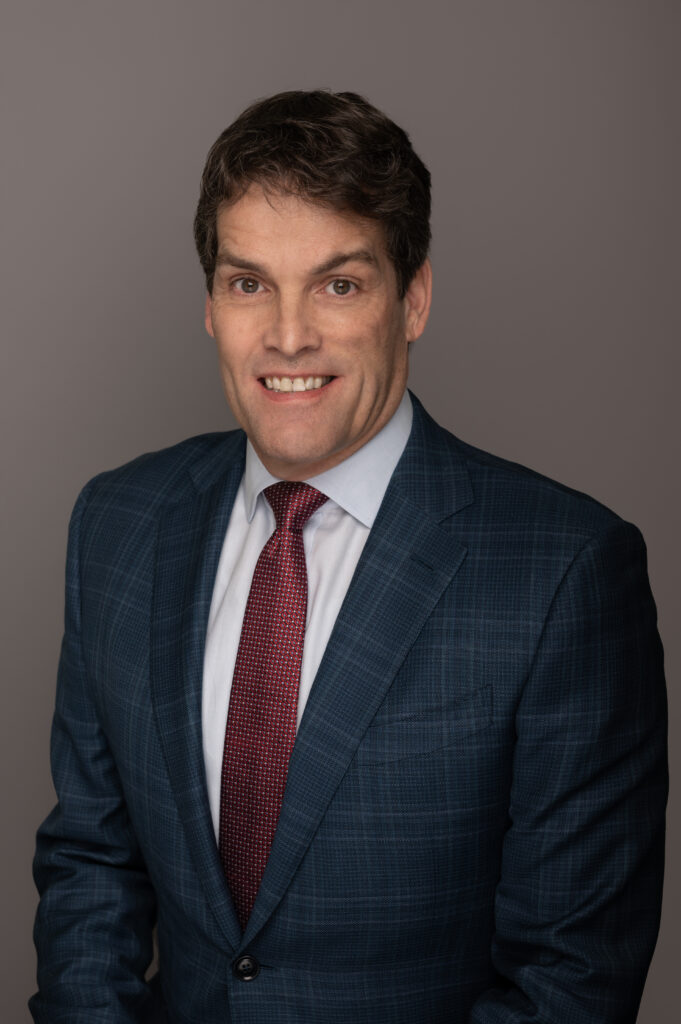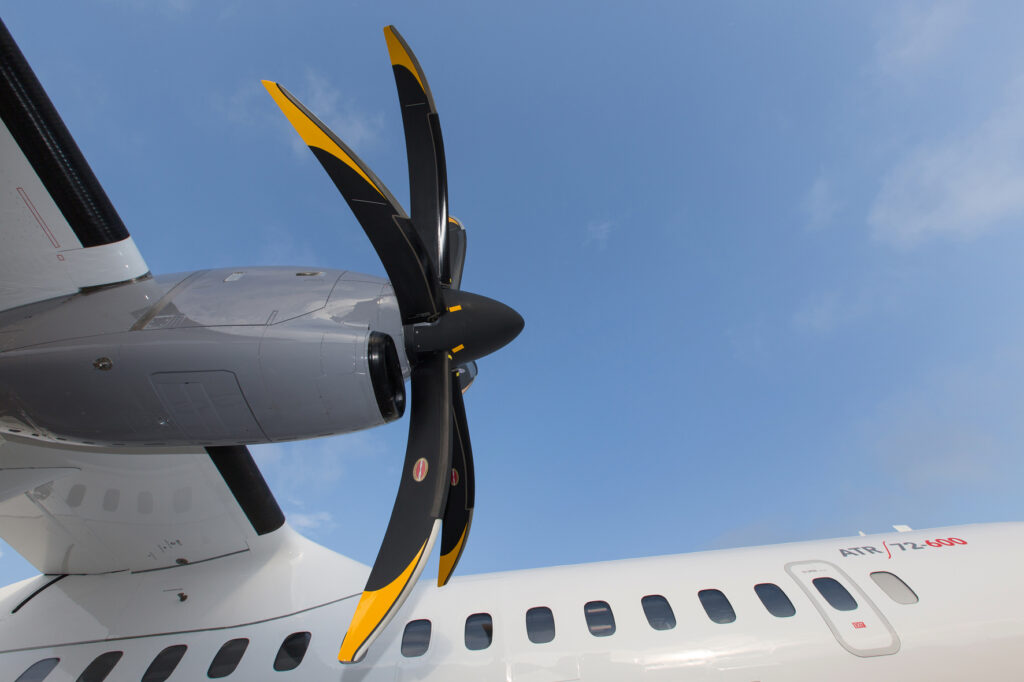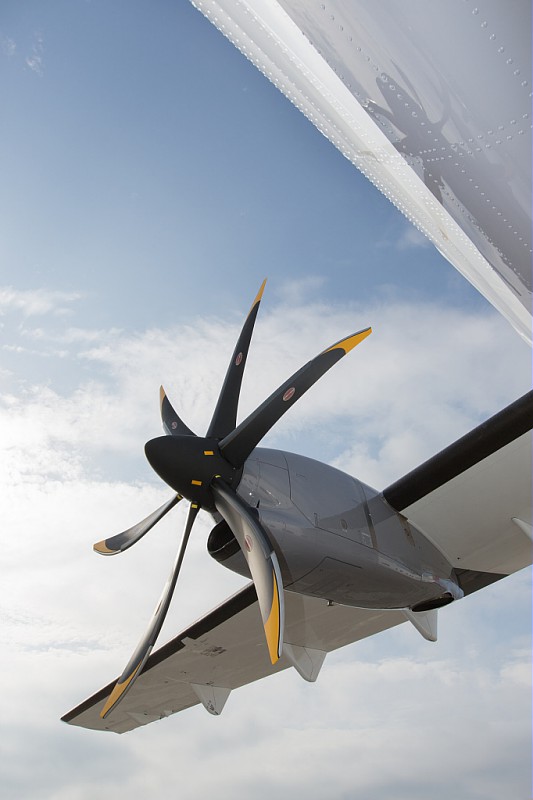Seven decades ago, Aircraft Propeller Service (APS) was founded with just five employees. Now in its 70th anniversary year, the company has become a global leader in propeller system maintenance services.
Boasting a long, rich history starting with its roots in general aviation, 30 years ago the company broadened its horizons by expanding into regional turboprops and working closely with Hamilton Sundstrand. It has never looked back, as President and CEO Dan Colbert explains.
“APS is an exciting story when you think back to the company’s start decades ago as a small, general aviation-focused shop and how it has grown into the leading propeller MRO shop in the world, serving a global operator base and having a presence on three continents. We are now the premier shop servicing regional turboprop aircraft as a key partner and licensee of Collins Aerospace, the leading propeller OEM.”

APS initially became a licensee of the largest global propeller OEM back in 2003. Ten years later, new ownership brought access to growth capital, enabling facility expansion and additional licenses. By 2015, the business had moved to a state-of-the-art 46,000 square foot facility in Lake Zurich, IL just 25 miles from Chicago-O’Hare international airport. A new facility in Brazil was established in 2016 and manufacturing capabilities were added in 2017.
APS’s technical staff boasts more than 500 years of combined aviation experience along with the latest technology, meaning essentially all critical maintenance processes can be performed under one roof.
Colbert, meanwhile, came to APS with 27 years of corporate experience. He spent the first half of his career with GE, starting in its aerospace division, and then progressing through a number of roles, culminating with several general management assignments in the Power Systems business. After his successful tenure at GE, he ran a large portion of Sears’ $3 billion home services business. Following a stint in Private Equity as an Operating Partner at The Riverside Company, a middle market firm, he took up his current role at APS to lead the next phase of growth.
Colbert says that a number of factors combine to make APS the pre-eminent company in its sector.
“There’s our technical expertise, the decades of experience of our workforce, our focus on quality and customer service, and most importantly, our alignment with the OEM. Coming to APS, you will receive the same quality of service and the same level of technical support as you would with the OEM. We’re not looking to cut corners. We pride ourselves on having the latest technical information, the best technicians in the world, the best engineering support, and the best customer service. We are focused on saving customers’ components whenever possible, providing exchanges when needed, and doing everything we can to help operators be successful. We can also deliver technical training either here at APS or in the field to help make operators more efficient and productive.”

At present, two of APS’s most significant customers are ATR, manufacturer of the ATR 42 and 72, and Airbus Defense, manufacturer of the CASA platform.
“We have long-term agreements with both of those OEMs to provide propeller services under their global maintenance agreements (GMA),” says Colbert. “So not only are we tied very closely with Collins, but we also marry that with strong ties to platform OEMs, ATR and Airbus Defense.”
He continues: “Beyond that, there are a number of large operators who manage their own fleet maintenance without service contracts. APS has long-term agreements in place with most of them – seven of the 10 largest ATR operators are aligned with APS. They see the value that we bring, and we work hand-in-hand with them to make them more successful through optimized repair costs.
“We don’t just offer repairs and overhauls. We offer exchanges and we offer training, whether that be on-site training or bringing people here to our facility. We’re focused on working with those operators to lower their operating costs and to avoid scrap so they can keep their planes flying and be more successful.”
As for APS’s facility in Brazil, which opened at the beginning of 2016, Colbert says that it was previously a Collins operation. When Collins decided to exit the facility, APS stepped in and took over in order to service the large regional turboprop fleet in Brazil. Meanwhile, APS has been working on its presence in Asia for a number of years.
“We know the importance of being in Asia. Operators want in-region support and we’ve aligned around that. We are now working towards finalizing space in KL with an eye toward opening a facility open later this year.”
And does the Asian market excite APS in terms of the company’s expansion?

“Yes, it does. I should also add that we’ve had a full-time salesperson located in Singapore since December 2021. APS has a physical presence there because we view the tremendous market growth as a significant opportunity and one that we will absolutely participate in. Our entry will start with propeller systems and quickly expand into more components beyond props, much like we did in Brazil. We started with the propeller system there and then very quickly added some additional licenses for main rotor and tail rotor actuators for the Airbus helicopters and the AW109 helicopters.”
Expansion into Asia isn’t the only new endeavor for APS – they have also started manufacturing aviation and aerospace parts. Yet another new avenue is airframe trading and teardown, as Colbert explains.
“We bought an ATR 42-300 back in the Fall of 2021. Then in December 2022 we made a bigger splash into the airframe teardown space by purchasing an E170 and an E190. We’re now in the midst of actively tearing those down and marketing and selling the parts. APS will continue to grow the teardown segment with plans to buy two to three more regional jets planes this year.”
He adds: “We’re excited about finally moving past the last effects of the pandemic. APS was open and worked in person throughout the past three years which enabled us to maintain our workforce and capabilities. We are now in a position to focus our efforts on growth. We’re going to be very active in looking at M&A opportunities to help fuel this growth.”

